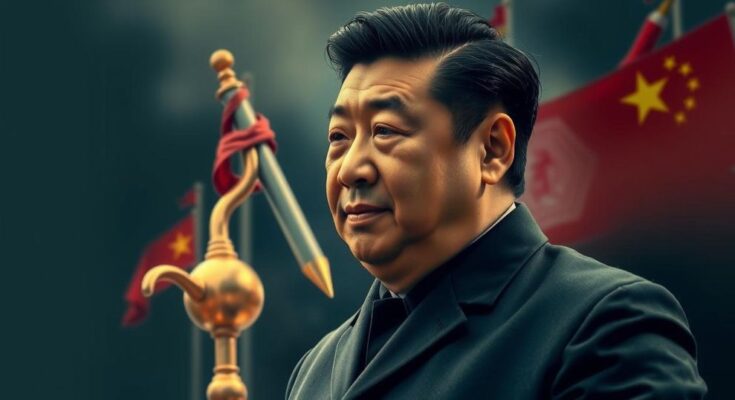This article examines the implications of North Korean troops gathering in Russia to support Vladimir Putin’s invasion of Ukraine, highlighting concerns over increasing collaboration among authoritarian regimes. It explores the complexities of China’s foreign policy, where Xi Jinping balances ambition with economic prudence, facing potential fallout from the instability of his allies. The situation poses risks not only for China but also for the broader global order.
The gathering of North Korean troops in Russia to support President Vladimir Putin’s military efforts in Ukraine has intensified concerns in the West regarding the potential for an autocratic alliance aimed at undermining democratic interests. This coalition, consisting of Russia, China, Iran, and North Korea, indeed reflects a shared resistance against U.S. dominance but is fraught with internal contradictions that could ultimately destabilize its members. Following Russia’s invasion of Ukraine, cooperation has been evident among these nations, as evidenced by Russia acquiring drones and missiles from Iran and China supplying crucial components to sustain Russia’s military operations. With North Korean forces reportedly preparing to join the conflict, U.S. Defense Secretary Lloyd Austin has classified this development as a “very, very serious issue” that could have repercussions extending into both Europe and Asia. However, while these states align against the U.S. and its global order, there are significant disparities in their strategies. Putin’s aggressive war posture differs from the more measured approaches of Iran and North Korea, which have less to lose economically but stand to gain materially as they support Russia. In contrast, China’s position is inherently more delicate; its economy relies heavily on the U.S. and its allies, which makes the prospect of sanctions a serious concern. Consequently, President Xi Jinping’s navigation of this geopolitical landscape is cautious. He aims to maintain global stability to safeguard China’s economic interests while courting relationships with autocracies like Russia and Iran, whose belligerent actions could create chaos. Washington is urging Beijing to rein in North Korea’s involvement, yet Xi seems reluctant, having recently met with Putin prior to the announcement of North Korean troop movements. Notably, China’s economic ties are a lifeline for the other three states. With significant trade relations—China has become a critical partner for both Russia and Iran, purchasing virtually all of Iran’s oil exports and accounting for 90% of North Korea’s foreign trade—Beijing finds itself in an enabling role for these regimes’ agendas. While this orchestration may appear advantageous to China by diverting Western resources, it also brings considerable risks that could rebound on the Chinese economy. For example, a wider conflict in the Middle East could disrupt energy markets critical to China. Further complicating the situation, South Korea’s potential military aid to Ukraine could catalyze further alignment among American and European partners against China. Xi’s foreign policy dilemma lies in his dual aspirations to destabilize the international order long-term while preserving it for short-term stability. His strategy appears to favor fostering a self-sufficient economic model and closer ties with developing nations to reduce China’s dependence on Western systems. However, these ambitions have yet to materialize within the current geopolitical volatility. If Xi’s gambit results in unfavorable outcomes, China’s hopes of avoiding backlash could be jeopardized, leading to unpredictable repercussions for the nation.
The article discusses the geopolitical dynamics involving autocratic states like Russia, China, North Korea, and Iran, particularly in light of their collaboration against U.S. influence, especially following Russia’s invasion of Ukraine in 2022. The gathering of North Korean troops in Russia represents a critical development that raises alarms regarding the alignment of these autocratic regimes. The backdrop features China’s complex role as it attempts to balance its ambitions to reshape global order while maintaining economic stability, highlighting the potential consequences for its economy and strategic interests.
In conclusion, while the coalition of North Korea, Russia, Iran, and China reflects shared opposition to U.S. hegemony, the divisions among these autocratic states pose significant risks. Xi Jinping’s cautious approach to foreign policy may serve immediate interests, but the long-term implications of supporting destabilizing actions in the international arena could jeopardize China’s economic security. The question remains: how will Xi maneuver if his current strategies do not yield favorable outcomes?
Original Source: www.theatlantic.com




